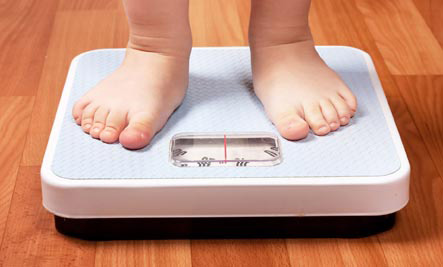
There is a lot of information in today’s media about childhood obesity, our current obesogenic environment and the associated risks they may have on the health and vitality of our next generation. With all this bombardment of scary statistics it is common for parents to feel just a little concerned. You may be asking yourself “Should I weigh my child?” or “what is the right weight for my child?” Let me share my thoughts on how you can tackle the topic of your child’s weight.
Monitor their height and weight trends
Adults can assess their relative weight category by their Body Mass Index or BMI using their height and weight, however this is not appropriate for children as they are still growing. Instead, your child’s height and weight should be measured along growth percentiles. The earlier this is done the better to set a baseline value and then to monitor and track their progress as they grow. It is normal for your child to go through phases of growth and weight gain, but look for the trends and aim for their weight percentile to be relative to their height percentile. Remember that one off measurements can be misleading particularly if they are experiencing a growth spurt, so follow their trends.
Focus on healthy eating
In todays world where fast food and high kilojoule snacks are advertised everywhere, it is important that your child has a good understanding of what normal healthy eating looks like. Ensure you’re your children have a good focus on ‘everyday’ foods such as dairy, lean meats, fruit and vegetables and can limit ‘sometimes’ foods or discretionary choices such as lollies, chips, soft drink and fast food. It can be a good idea for the whole family to focus on healthy eating and maintaining a healthy weight so try to get rid of treat foods from the fridge and pantry and keep them off the grocery list.
Teach them how to eat
Children tend to do as you do so it’s important that they learn healthy eating habits from you. You will also be helping them to develop a positive body image and healthy relationship with food that they will nurture as they grow older. Being a good role model isn’t just showing your kids what to eat, it also means teaching them how to eat. Encourage them to be aware of their own appetite signals; to eat sensibly when they are hungry and most importantly, to stop when they are content. Going through puberty and/or a growth spurt places increased energy and nutritional demands on their body so they will most likely experience a corresponding increase in appetite. At these times, make sure you’ve got the fridge and pantry stocked with healthy and satisfying options!
Have your child assessed
If you have concerns about your child’s weight, I recommend that you make an appointment with an Accredited Practising Dietitian. Initially parents should come in without their child for a consultation so you can discuss weight management strategies and goals without putting too much pressure or unwanted attention on your child. As a family, try to avoid promoting ‘weight loss diets’ or any ‘diet’ for that matter; Dieting is not recommended particularly for those children who still may be growing as reduced energy and nutrient intake has the potential to affect height, bone and fat composition.
There is no correct weight that your child should be; the taller they are, the more weight they’re likely to put on. Everyone is different and your child will grow and develop at their own rate based on many factors. Don’t forget to talk to your Dietitian if you’re concerned about their weight.
